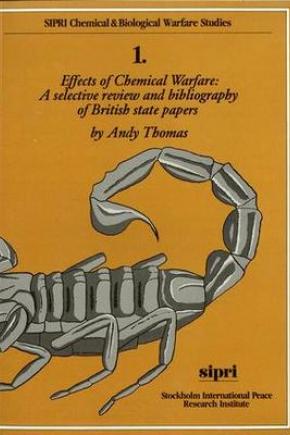Effects of Chemical Warfare: A Selective Review and Bibliography of British State Papers
This book is the result of an exploration of the state papers of the United Kingdom undertaken with the aim of discovering information about the past use of chemical warfare. This information may serve as a point of historical reference in speculation upon the possible nature and consequences of large-scale chemical warfare recurring in Europe. Part I of the monograph concentrates primarily on material documenting the use of chemical weapons in the First and Second World Wars, the impact of this use on the civilian populations of France and Belgium, casualties incurred in the production, research, development, training and deployment of chemical warfare agents, and the attempts made to incorporate chemical weapons into military doctrine and war-preparedness. Part II supplements the citation of documents in Part I. It comprises an ordered bibliography listing not only the location of the records found to be of primary concern to this study, but also the location of other records not cited in Part I which appear to form much of the remainder of the official record of the British CW effort. A list of some of the papers which have not been released comprises the concluding section.
Contents
Part I. Review
1. CW in the First World War
2. Aftermath
3. The Second World War
4. Post-war development of the British CW programme
Bibliography
About the author
Andy Thomas is a social scientist by training and currently works for an official body in the UK. Historical research in British archives occupies much of his spare time, the results of which have appeared in numerous publications, including New Community, New Scientist and New Statesman.
About the series editor
Julian Perry Robinson is a SIPRI Consultant based in England. A chemist and lawyer by training, he was a member of the SIPRI research staff during 1968-71 and has held research appointments at the Harvard University Center for International Affairs, the Free University of Berlin, and the University of Sussex, UK, where he is currently a Senior Fellow of the Science Policy Research Unit. He has served as a consultant to the World Health Organization, the United Nations Secretariat, the International Committee of the Red Cross and the UN Environment Programme.
SIPRI Chemical & Biological Warfare Studies is a series of occasional papers intended primarily for specialists in the field of CBW arms control or for people engaged in other areas of international relations or security affairs whose work could benefit from a deeper understanding of particular CBW matters. The papers originate in studies commissioned by SIPRI as input for subsequent non-specialist SIPRI publications.

